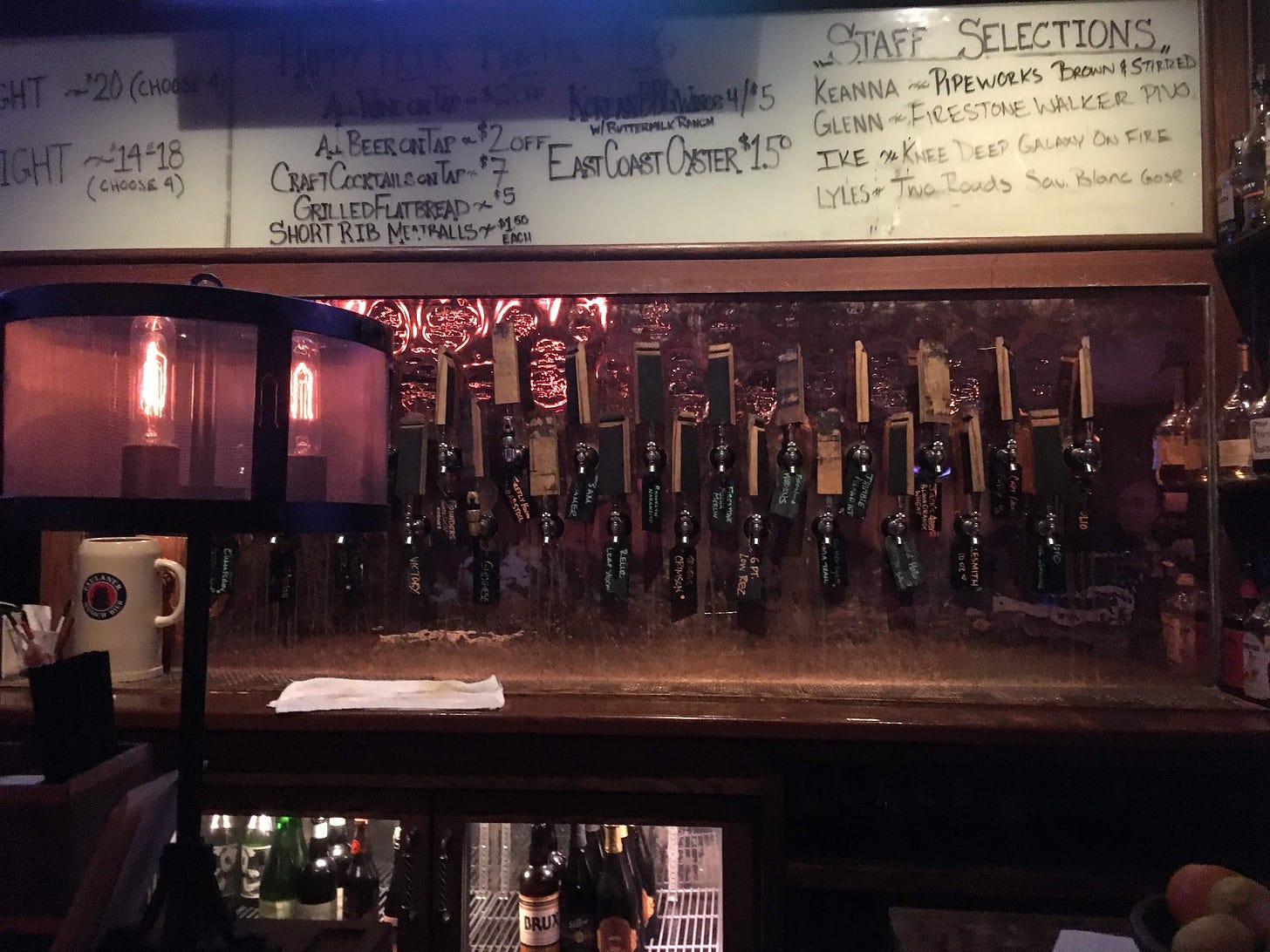The date was going okay. I’d recommended a bar in my neighborhood where the lighting was usually too dim and the music usually too loud for my liking, but it was a Monday night, so the lights were a little brighter and the music a little softer. We sat at the bar—I ordered a cocktail first (something fruity off the menu) and then an Allagash beer. As I was finishing up my beer, I mentioned that it was getting late on a Monday, and he agreed. I went to the bathroom and texted a quick message to the group chat—It’s going okay, still here but leaving soon. I’ll tell you more later.
When I got back to the bar, I found him closing out the check.
He paid the bill without me having to do the awkward grab for my wallet moment. I texted in the group chat after we parted ways on a nearby street corner. It was hot.
The date went from “okay” to “great” in that moment. And sure, part of that was that it’s nice to be treated. But the best part was that it avoided that awkward open-your-purse moment, offering to pay or split, and either really meaning it, half meaning it, not meaning it at all, or not really sure if you meant it or not—or not offering to split and just expecting them to pay and saying “thanks.” Because I really don’t know which of those is better when they’re likely going to pay anyway.
Men paying for first dates is a dated practice1, with the same reasons men ask women on dates, men propose to women, and women change their last names to their husbands’ (historically—not nearly as often anymore!).
Yes, there’s still a gender pay gap, but young women are out-earning men in some major cities. Despite this, the tradition stands—72% of Americans think men should pay for the first date.
There are six outcomes I’ve seen (and heard of from friends) when the check comes to the table on a first date with a man and a woman:
The man paid.
This is the most common option I’ve witnessed personally and seen secondhand.
The man paid for the first place, the woman paid for the second.
The classic two (or three!) dates in one.
Separate tabs.
This is a weird one that I’ve only had happen once. It felt very much like getting drinks out with a former coworker that orders too many Old Fashioneds that you don’t want to pay for when you’re just drinking Bud Light.
Split the check down the middle.
This also feels very much like going out to dinner with a friend and not a date. However, I’ve heard from a lot of people that they prefer this option when they know there won’t be a second date.
The woman paid.
This has never happened to me on a first date, but I’m not in the habit of asking people out on dates.
The date was free.
A walk in the park, no sweat over the check—literally.
I have friends who swear they leave their wallet at home when they go on a date, and I have friends who say if he doesn’t pay for the first date, there’s no second date, no matter what. I also have friends who could care less about that, who are in committed relationships and don’t remember—or care—who paid for the early dates. I have friends who think it’s polite for the person who invited the other to pay for the date. And I have friends who insist that it’s not about the cost of the date, but the gesture.
And I have a lot of friends who are somewhere in between, but just really, really hate that awkward moment when the check gets dropped on the table.
In today’s culture of online dating (and the ability to sleuth just about everything from from someone based on their first name and alma mater), it’s easy to profile how much money someone makes—and to make judgements from that, whether they’re rooted in the superficial (it would be fun to go to that fancy restaurant and not have to worry about paying) to the logical (wanting to date someone financially stable as one craves stability in their own life).
And maybe it’s not about the money being spent but the kind gesture—if money makes you hot, that can quickly simmer down in the wrong context—look at Leo from this most recent season of Love is Blind (context without spoilers: a contestant on a dating show spent most of his dates talking about how much money he had, and that was a turn off to most of the women).
In that first date I mentioned, we never actually made it on a second date. After some days of reflection, I realized that while his gesture was both kind and attractive, I really wasn’t that interested in him and we didn’t have that much in common. Money is hot, but it isn’t everything.
Let me know: who should pay on the first date?
Thanks for reading! Subscribe for free for weekly posts empowering you to spend your money and time more intentionally. You can also join at the paid tier for access to the Backwards Budgeting spreadsheet and more insights into my monthly budgeting practices.
Send me a DM or submit the form here if you’d like to be featured in the Making it in NYC series.
More on Ten Dollar Latte
I’m writing today’s post from a straight dating perspective because it’s my lived experience. I’d love to hear others with queer dating experience share in the comments how this resonates/differs!










Coffee to go and a walk takes the biscuit, in my opinion! At least treating someone for a coffee doesn't break the bank or you can simply buy your own coffee.